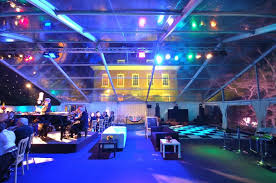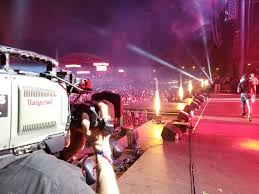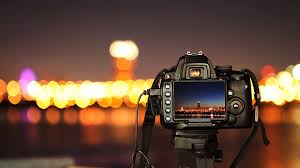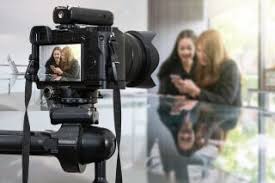Here’s What Makes a Great Party Planner
Some things are best left to the professionals — oftentimes, that includes planning events. While it’s certainly possible to DIY a great soiree, hiring a professional party planner ensures you can put on a successful event and actually enjoy it, too.
So, how do you know what qualities to look for in your perfect event planner? Look no further: We’ve done the research and talked to experts. Read on to see what we found out.
They’re organized
Let’s face it: Party planners are often so crucial because there’s just so much planning to do! Even if you’re naturally organized and a master of systems and checklists, a great planner should have processes in place that top even your best DIY ideas.
Ask them a bit about what they do to stay on top of all their work. While they don’t have to show you their personal templates, reports, or spreadsheets, they should be able to give you some background on their method of organization.
Do they have a unique way of wrangling vendors? Do they vow to check in with caterers regularly? Ask questions about their workflow so you know they’re intentional about how they handle all the moving parts. The last thing you need is a planner that prefers to wing it.
They track stats and data
Did you know that event planning software and analytics tools are a big market for event planning professionals? Many of today’s top planners use some form of data products to keep them on budget and on time.
They also often use these tools to provide them with precious performance stats so they can tell you how everything went. While you don’t necessarily need to know the nitty gritty of how this is done (or what tools they use), it’s a great dose of transparency.
They take their work seriously
Even if you find out about a party planner from a referral or mutual friend, it’s wise to take the time to research their business and ensure they do things like a professional. Start with their website or social media platforms to see how they communicate. Look to see that they have more than one way to reach them. Can you call? What about text or email?
You may also want to check any online reviews for the planner if they’re big enough to have them. Not all of the best planners will have reviews, and that’s OK. Remember that a bad review or two isn’t necessarily accurate or representative of their work as a whole. Seek out a broad range of reviews or comments, and take them as a collective account of how they’ve done business in the past.
They can provide references
More than just online reviews, a seasoned event planner will likely have references who can speak to their work. To take things a step further, it might also be helpful to ask if they have references that aren’t just former clients.
Venues or caterers, for example, could add some depth to their history that shows how easy they are to work with or their communication style. Whether the planner offers references as part of their proposal or you ask for them directly, they shouldn’t balk at the idea of third-party testimonies that you can confirm with the sources personally.

How to plan the perfect party in 5 easy steps
Whether your’e coordinating an office event, setting up a kid’s birthday party or celebrating something special with family and friends, check out these simple tips to help you get the party planning started.
Step One: The big one – budget
Whether you budget is set by your boss or hammered out between you and your spouse, setting a dollar amount and making every decisionwork with that number is critical to your planning success.
Once you decide on the maximum spending amount, make a list of projected expenses – food , party venue, entertainment, party furniture, lighting, catering equipment, marquee etc record all the costs keeping in mind your maximum allowance. It is a good idea to have a provision in your budget say 10% for unexpected expenses this will provide a cushion for items that may have been missed in the planning stage.
Step Two: The party team
Enlist the help of a team of people, they will help to come up with idea’s for your theme, make a list of who will help with what task. Time management on the day of you party / function is critical to the success of your party, everything needs to run on time.
Step Three: Planning, create a checklist
Creating a to do list in order of time can assist the team in ensuring that all the tasks for the party are organised and ready to go on the day, the checklist can also include a run sheet for the day.
Arrange regular catch up meetings with your team to ensure everyone is on track. A team member who is ahead of schedule can reach out to another who might need a little extra help.
Step Four: Invitations
Ensure invitations are sent out with enough time prior so that guests have plenty of time to plan ie babysitters, transport etc. As you are working to your budget it is important to maintain the number of guests that you have budgeted.
If you are using social media to invite your guests ensure you use a closed event and that invitations are controlled.
Step Five: On the day
Its important that the checklist is used to ensure nothing is missed and everything runs to the plan. If their are any minor issues on the day these often aren’t noticed by the attendees, it is important that any issues are handled with discretion.
Ulimately the success of your party will be based around the guests having a positive fun experience on the day.

Special event planning timeline
Ideally, you want to start planning a major event a year or more ahead. Once you have a date and venue, here’s what else you’ll need to do:
12 months before
- Choose a theme and work on a budget. Decide the general type of event, such as sit-down dinner or buffet meal, and other major aspects, such as entertainment.
- Get cost estimates for food, drinks, entertainment, decorations and gifts. Food alone can cost from $10 to $35 a person, so feeding a party of 100 people could cost at least $3,000. A professional DJ for the entertainment could cost between $100 and $300 an hour.
Six months before
- Finalize details with all vendors.
- Buy decorations and choose invitations.
Two months before
- Mail invitations six to eight weeks before the event.
- Finalize details for transportation and guest lodging.
One month before
- Contact guests who have not responded to the invitations, so you can provide a final head count for vendors, especially the caterer and event hall.
One week before
- Plan to be busy with last-minute details, including decorating, seating arrangements and preparing gifts or favors for guests.

What are the benefits of hiring someone to plan my party?
Planning a party can be downright stressful, but most people don’t even consider hiring a professional event planner for anything other than their wedding. However, hiring an event planner is more affordable than you might think and they can help coordinate any type of party, such as:
- Children’s birthday parties
- Teen parties
- Bar and bat mitzvahs
- Corporate events
- Company holiday parties
- Fundraisers
- Bachelor and bachelorette parties
- Weddings
- High-school and college graduation parties
- Memorials
- Holiday events
Benefit Hire a Party Planner?
A party is always an exciting event. It’s something that people look forward to escape stress and just have a good time, so parties shouldn’t be complicated events – especially for the guests! Of course, it can be a different story if you’re the one planning the event. It might be a little nerve wracking and stressful, and you’ll need a solution for that.
Hiring a party planner may be the best option. You might think that hiring professionals can become costly and unnecessary, even for big events, but at Scarlet we , our luxury wedding planners and party planners often provide even more help than our clients ever imagined. Many people don’t consider the many benefits of hiring professionals until they’re presented clearly:
1. It Saves You Time
This is one of the primary reasons for hiring party planners. Time is such a valuable commodity that you wouldn’t want to waste it at any stage in the planning process. An initial strategy meeting that plans out the whole event is what’s going to happen. After that you could let your planner do all the meetings and whatever else is needed. He’ll basically organise the whole occasion for you.
2. It is Cost Effective
Yes, you read that one right! Our event planners ask about the budget early on and help establish the best way to use it with you. From there, they can easily go to suppliers and vendors who can fit into that budget of and make everything work.
3. Your Party’s Going to Look Great
You’ll probably get by on your own, but it’s not going to look as great as if you had when you have professionals planning your event for you.
4. Help with event planning details
An event planner will help figure out location, seating, food and drinks, and entertainment to make your event unique and a smooth and seamless production, no matter how large or small. They’re experts in coordination, and know what details to consider — even when you don’t.


